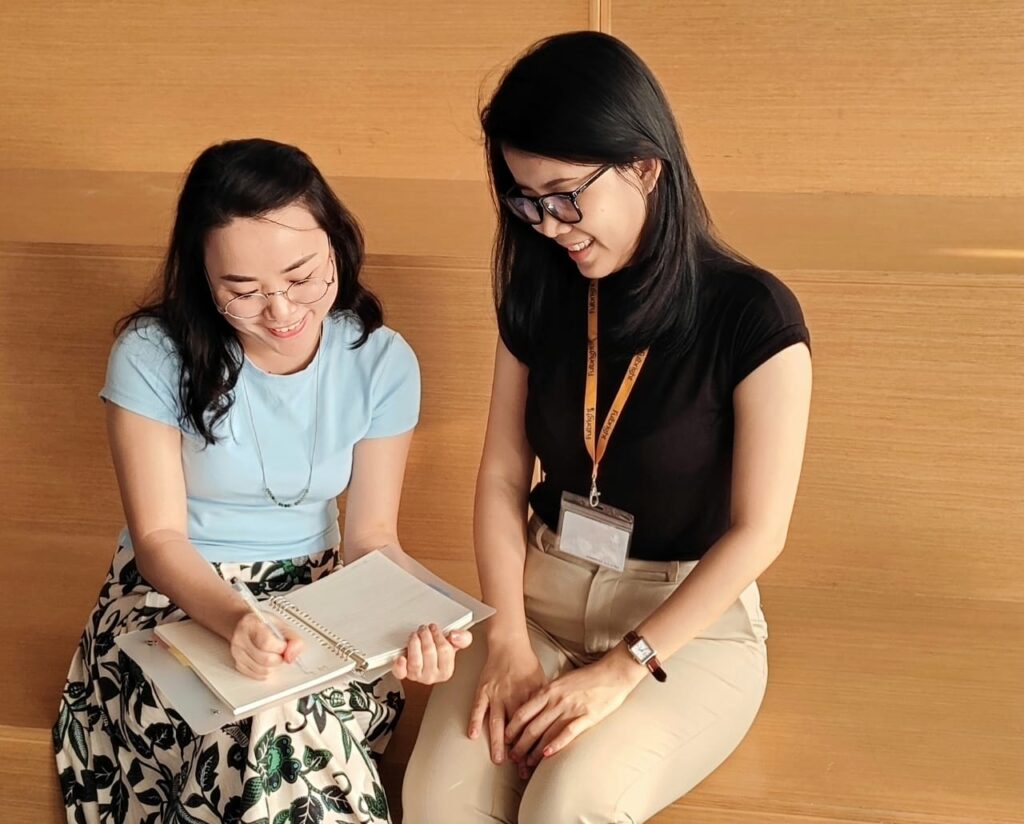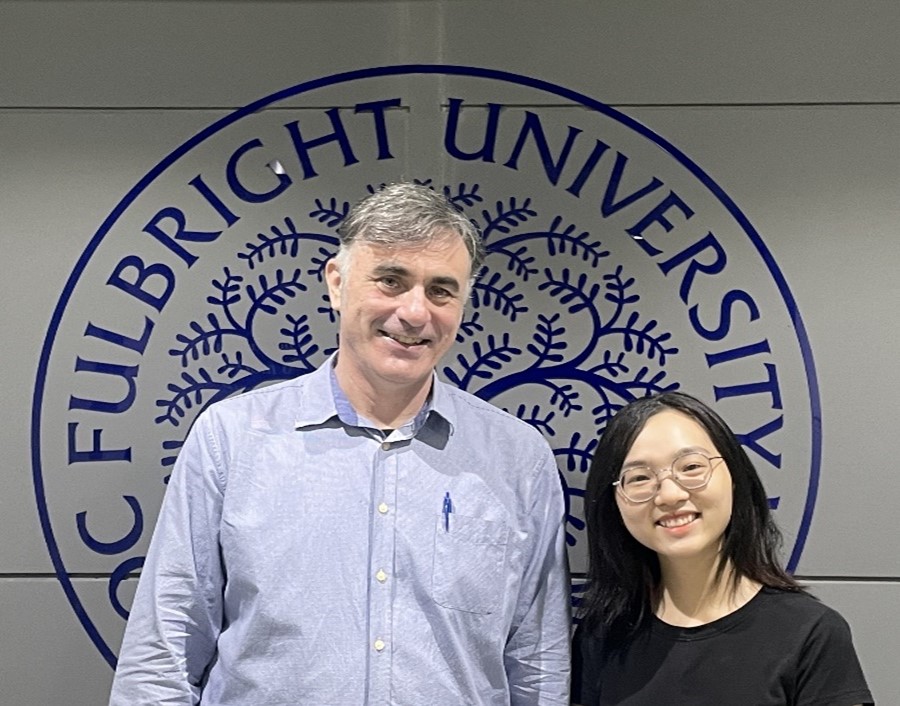
Back: Lan, Thao, Matthew Front: Viet Linh and Phuong Linh
“Globalising Positivity Discourses and Women”, a newly published article by Fulbright Psychology Researchers investigates how Western-based self-help imperatives are directed at women in Vietnam “to challenge their negative thinking” and “to become more confident.” While such imperatives offer several benefits, the authors are concerned that these may lead women readers into thinking that psychological blocks rather than entrenched inequalities are holding them back.
The study is the result of a fruitful collaboration between Fulbright University Vietnam students, graduate teaching assistant, and faculty published in the internationally recognized journal Social and Personality Psychology Compass (2024, Volume 18, Issue 1). The authors comprised Đỗ Thị Thu Hiền (Co24 Student), Nguyễn Thị Thu Thảo (Graduate Teaching Assistant, Global Humanities and Modern Vietnamese Culture and Society), Nguyễn Thị Lan (Assistant Professor), Matthew McDonald (Professor) and Trần Kiều Quỳnh Như (Master of Arts Psychology student, The University of Auckland, New Zealand).
Over the last 10 years, the authors have observed that women in Vietnam have become increasingly targeted by positive psychological messages emanating from North America and Western Europe in the form of self-help (self-improvement). Once confined to the West, the positive psychology and self-help targeting of women has become a global phenomenon that is now flourishing in Vietnam.

Lan and Thao
“My colleagues and I have been conducting and publishing research on various women’s issues in Vietnam over the last 10 years. We noticed more and more that positive psychology and the culture of self-help was gaining popularity, and that it was primarily targeting women” explained Psychology Faculty member Dr Nguyễn Thị Lan. “We certainly want women to enjoy the benefits of positive thinking and to have greater confidence in themselves. However, we are concerned that these global cultural imperatives are being interpreted by Vietnamese women that they need to turn inward and work on improving themselves to enhance their success in life when, in fact, in a lot of situations, it is structural social inequality that needs to be recognised, challenged and fixed.”
“What contributed to the quality of our insights and analysis in the study was the diversity of researchers’ backgrounds in terms of age, knowledge and life experiences,” said the lead author Professor Matthew McDonald. “The spark that set the study off was a conversation I had with Hiền after class one day. She told me that women’s self-help in Vietnam is much bigger than we initially suspected. She started to show me a slew of podcasts, dating apps, blogs, and self-help books authored by Vietnamese women. It really opened my eyes.”
“I am grateful to be able to practice my research skills since my second year of university. Besides cultivating my knowledge of psychology, I learnt how each step of the research process works as well as collaborating with a team of researchers and exchanging ideas. It’s a major milestone in my academic journey to be a co-author on a respected psychology journal paper,” said Ms Hiền.

Hien and Matthew
The team has now made significant progress on the next phase of the study. “Our first study laid the foundations of the phenomenon, ‘explored the landscape’ so to speak. We are in the process now of conducting a ‘content analysis’ of self-help books and social media published in the Vietnamese language by Vietnamese women authors. The purpose is to gain a more fine-grained understanding of how these cultural imperatives are communicated, the type of language used and how they construct the ideal Vietnamese woman living the good life,” explained Professor McDonald. In the process, the recruitment of further Fulbright University Vietnam students and alumni has bolstered the research team, including Ms Nguyen Phuong Linh (Co24 Student) and Ms Nguyen Viet Linh (FUV Alumni). “Working on this project is a great opportunity to apply the skills and knowledge I learned on my BA Psychology degree at Fulbright University Vietnam to contribute to the health and wellbeing of women in Vietnam”, said Ms Viet Linh who is applying internationally to do a PhD degree. “Involvement in this project means that I can show evidence of my research skills on my PhD applications”.







